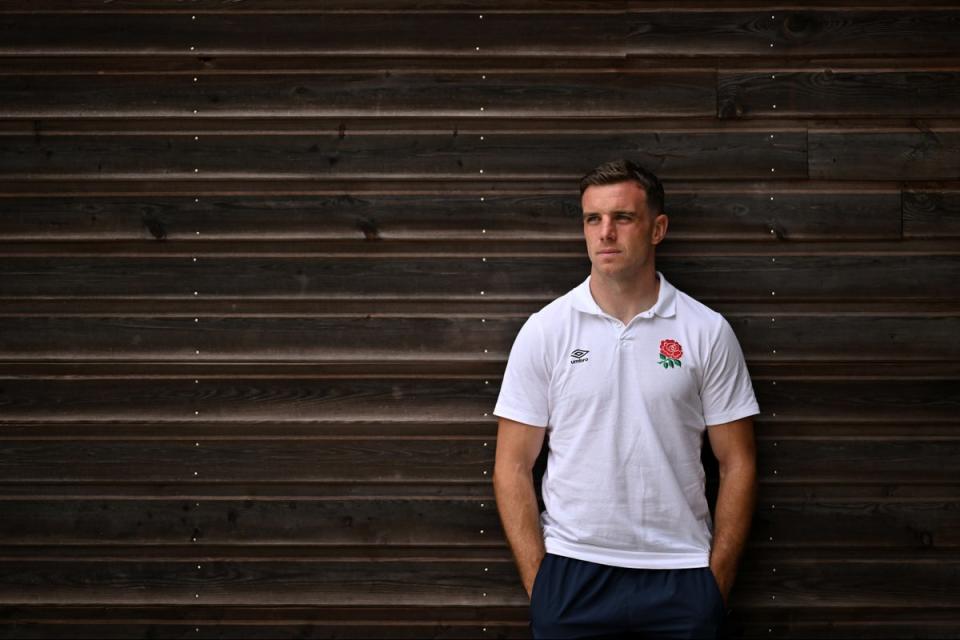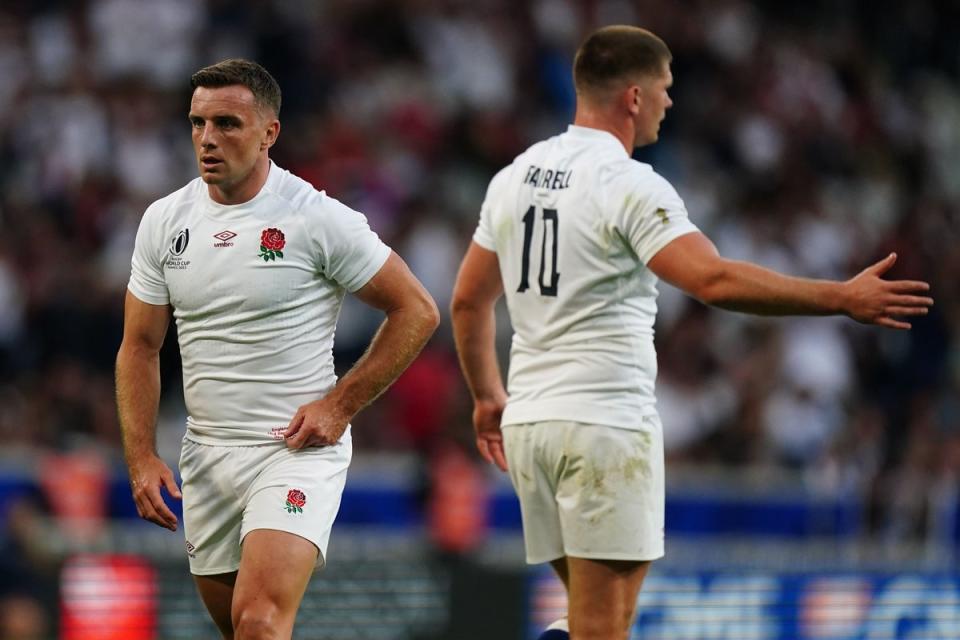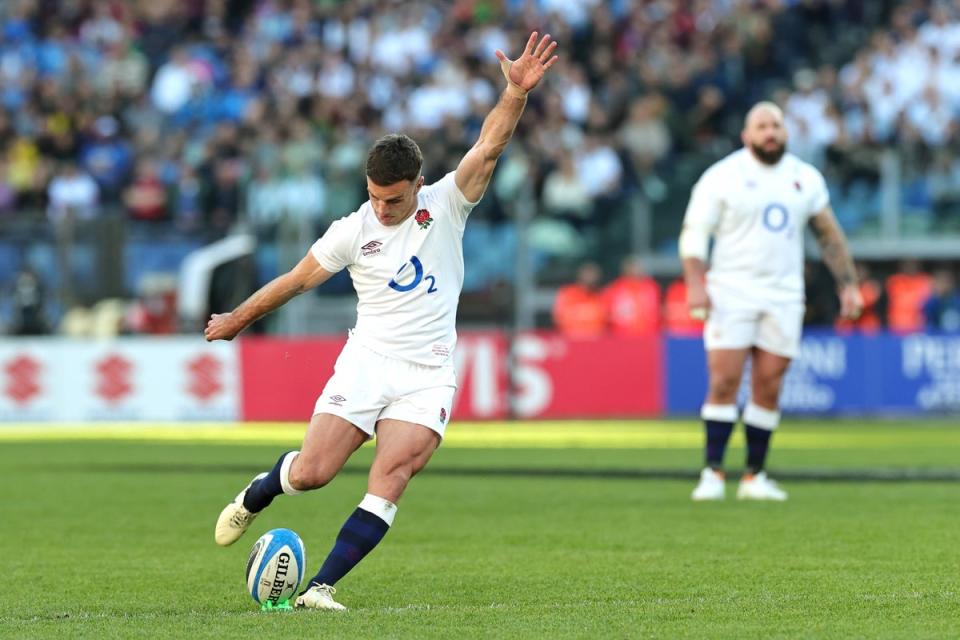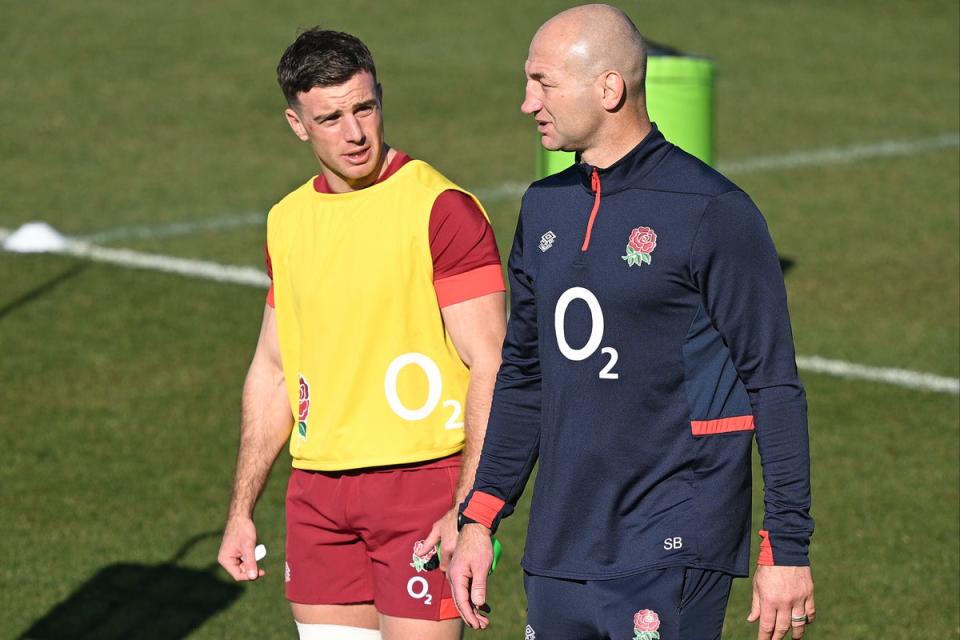George Ford: ‘It’s strange without Owen Farrell – but I know there’s a lot more in me’

Being the last man standing in a famous double act can pose problems. Ernie Wise was never the same after Eric Morecambe danced off the stage, Stan Laurel refused to perform after Oliver Hardy’s passing, and Ronnie Corbett struggled significantly after Ronnie Barker said goodnight for good.
George Ford and Owen Farrell may not be quite so inseparably intertwined but it feels peculiar to be spending this Six Nations talking about one and not the other. For an entire era of English rugby, they have been the dynamic, debated duo; for the best part of 15 years, Ford has followed Farrell.
“It is a bit strange,” Ford admits as he prepares to take on Wales at Twickenham on Saturday, reflecting of the loss of a kindred spirit after Farrell’s decision to step away from international rugby. Ever since arriving into the England team in their early twenties, it is Farrell and Ford who have set the tactical template, two live rugby minds bringing the best out of one another. “He is rugby-obsessed,” Ford continues. “A lot of the conversations me and him would have would be about rugby, the game at the weekend, about training, the game the previous night.

“He has been here for so long, he has been a massive leader for us and he stamps his authority on our team. Of course, it is different, but there is always a time when things change.”
Ford, two years Farrell’s junior, would not suggest that he has at all been in his good mate’s shadow but so many of their intertwisted stories have ended up with the Sale man in the shade. It feels strange that someone who is almost inarguably England’s third most successful fly half of all-time could be regarded as a talent unfulfilled. Ford may well become England’s seventh male centurion before the year is out and yet so rarely has he stood alone in the spotlight – and both Marcus and Fin Smith could well stake a claim to his starting shirt before this championship ends.
The curiosities of his career were again evidenced during the World Cup, when Ford produced one of the finest England performances of all time to down Argentina but found himself out of the starting team come the knockout rounds. “Maybe I should have played scrum half,” he jokes as he reflects on a Test career now into a second decade, before producing a more serious appraisal.
“I suppose fly half is like quarterback in the NFL, the responsibility that comes with it. There is a spot to start and a spot on the bench and it is as clear as that, really. Since making my debut for England, the one constant and consistent thing is the debate around who plays number ten. Everyone’s got their opinion on who should play and the way England should play. All I can do as an individual is try as well as I can.

“You want to run the team. Your responsibility as a ten is to manage the game, make good decisions for the team, and build relationships with players around you so you can be effective in attack and make sure you dominate the game through field position. To do that, of course you want to play week-in, week-out and build relationships.
“I have been through all the emotions: frustrated, disappointed, gutted, angry. But what these experiences have done, because it has obviously happened a few times, is allow you to deal with those moments a bit better and stay a little bit more neutral about it. When I was younger, you are starting and playing every week, and you get dropped and you are at rock bottom and it is a roller coaster ride. Whereas now, you still go through the emotions, but it is about how quickly you can get back to accepting whatever that role is and how well you do it.”
Ford recalls the 2015 World Cup as particularly tough, navigating Stuart Lancaster’s side to an opening win over Fiji and then not starting again until England were out of their home tournament. But Farrell’s sabbatical and Marcus Smith’s injury have opened up a real opportunity to make his mark on this campaign, with Ford relishing the chance to go again in a midfield with Fraser Dingwall and Henry Slade that showed signs of real promise in Rome.

There is no suggestion yet that the 30-year-old fly half may be feeling the fingers of Father Time on his shoulder but England’s youth movement is evidence enough of how quickly things can evolve. England have ten backs in their squad for this tournament who are 24 or under; Ford’s opposite number in the Welsh ranks, Ioan Lloyd, at Twickenham on Saturday will not turn 23 until after this Six Nations.
But this seasoned performer has plenty more Test sketches left in him. “What you see with these young lads coming through now is so much energy and confidence and enjoyment in what they do. Maybe that has changed a little bit.
“When we came through at 19 or 20, I think there was s the and attitude but these lads probably look they enjoy it a lot more than we potentially did. They don’t look too nervous, they don’t look too anxious, they are loving every second of it. The one thing us leaders have tried to pass on to them is just the nature of Test rugby, and it is a massive step up from Premiership rugby.
“I feel like I’m continually improving. But I know there’s a lot more in me as well, in certain aspects of my game, which I’m working hard on. As soon as you think you’ve nailed it, that’s when you get caught out.”

